THE WIDOW OF THE NATION
Örkény István Theatre
Premiere at 16.06.2022.
In 1989 (at the end of the state socialism), a whole host of tabooed, silenced stories become uncovered in Hungary along with the unmarked graves of the martyrs who fought in the '56 revolution. Dozens of families go through the nightmare of unearthing and identifying the bodies of their loved ones.
Two women stand beside one of these graves as they mourn the same man as wife and as lover. The bones of the man they once loved confronts them with their own past – feelings, secrets, hurt and desires that were left untold.
How many versions of the same memory can exist? How can the unspeakable be conveyed when even the most private and intimate tales have been shrouded by political games in the public eye?
The Widow of a Nation is not a documentary drama, but a fictional world inspired by elements of reality, featuring archetypal figures, and focusing on Hungarian historical memory – a world that centres around those who remain, those who bear the burden of the past; the widows, the children and, through them, the descendants of these fragmented memories themselves. Us.
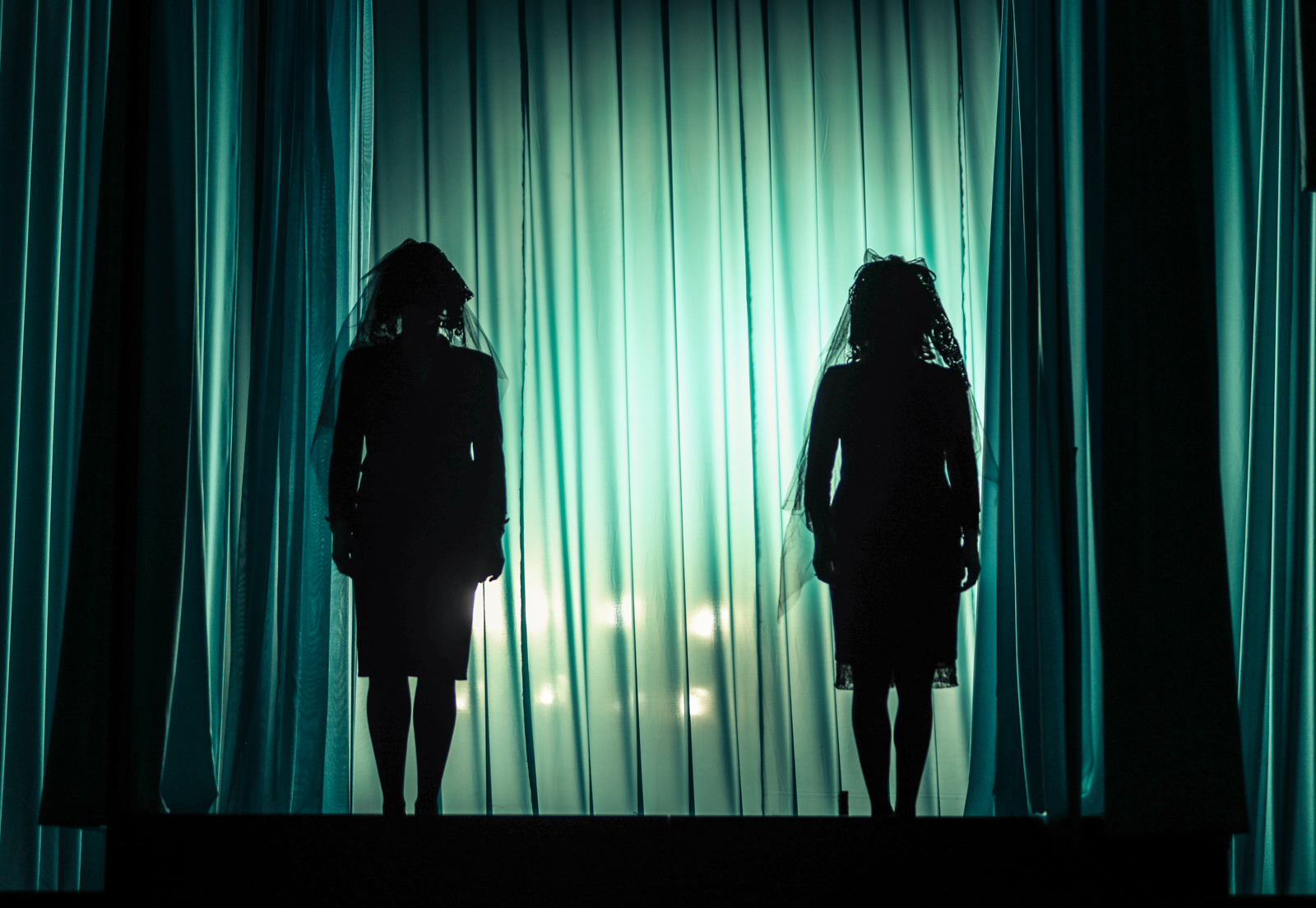





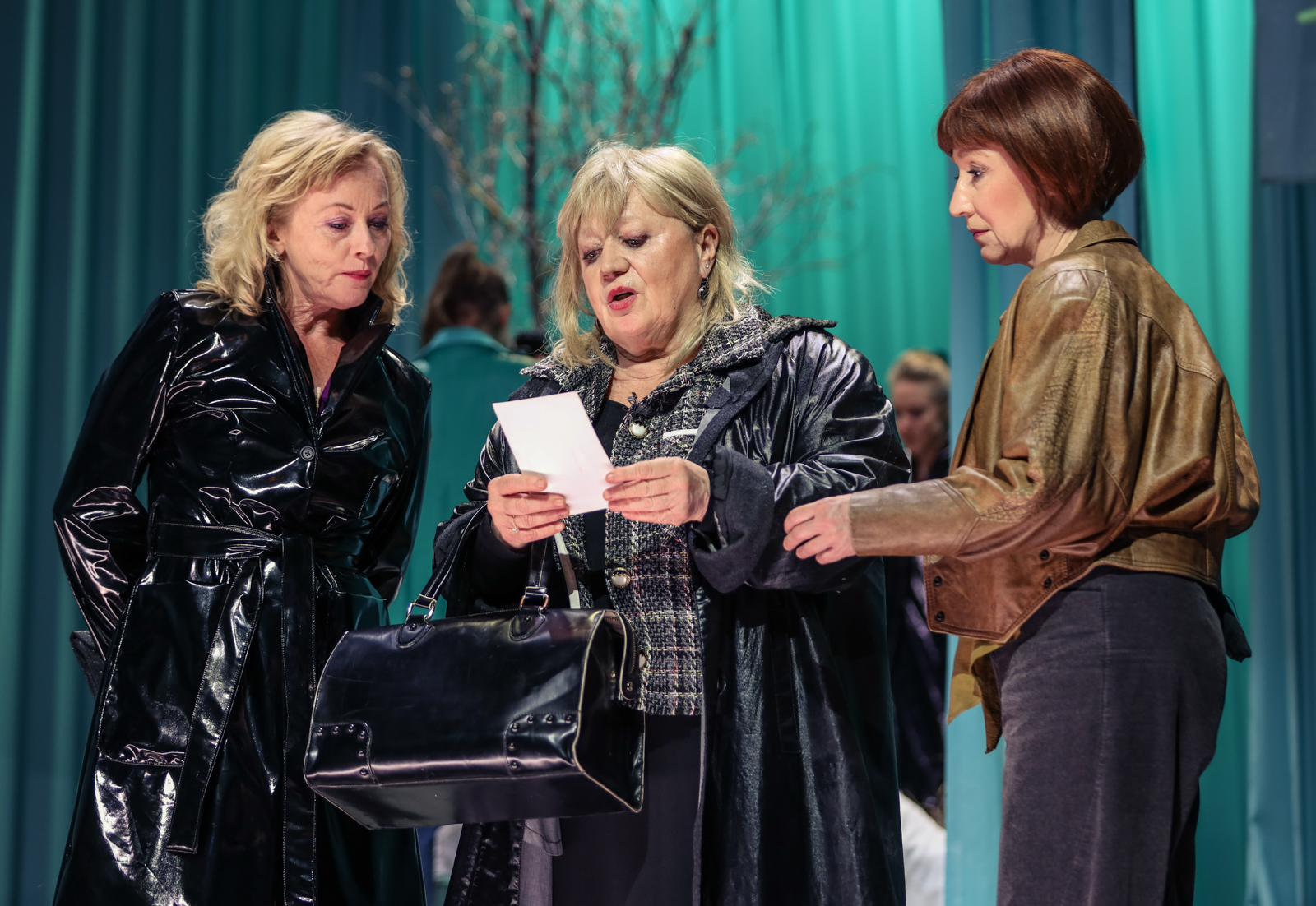




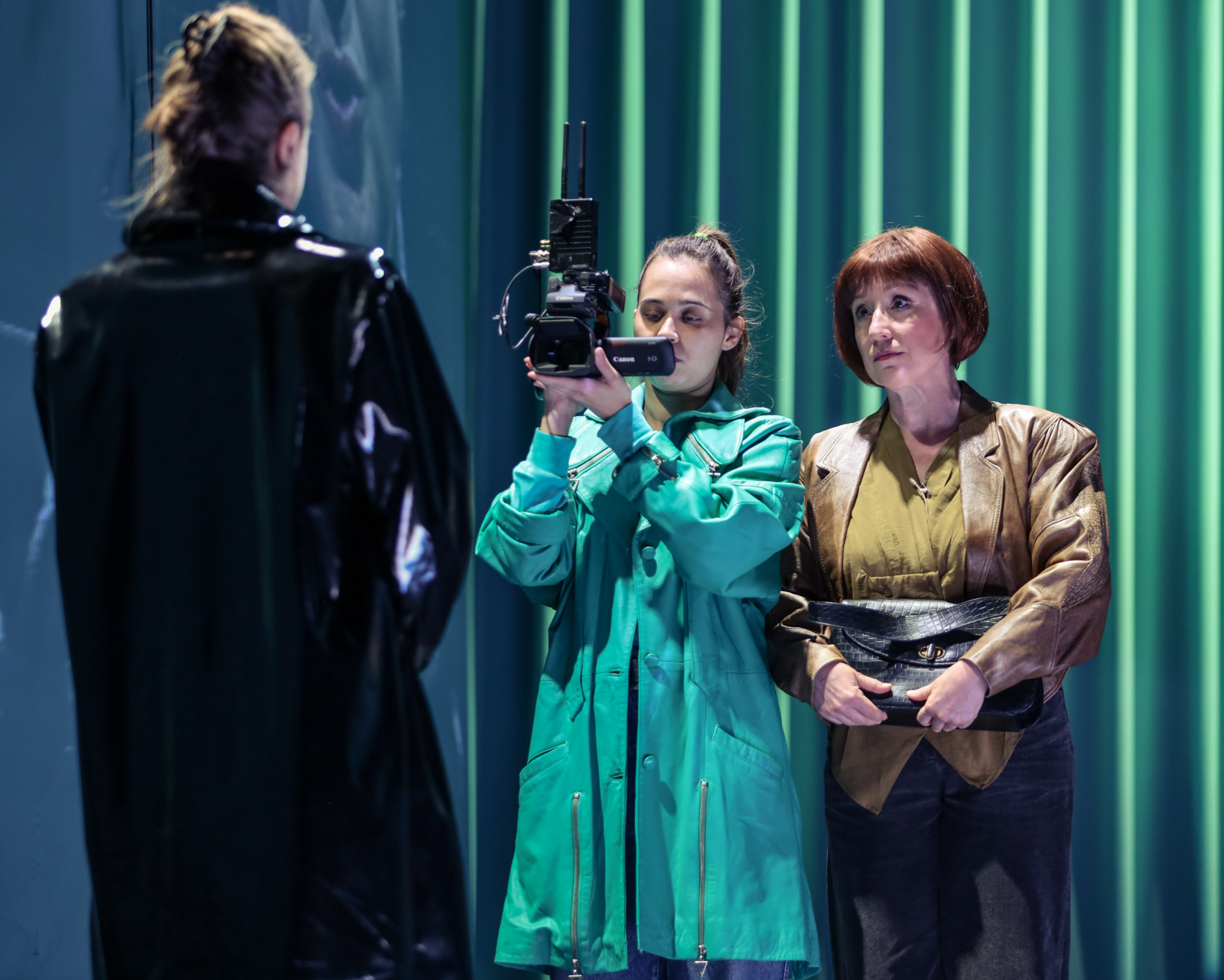
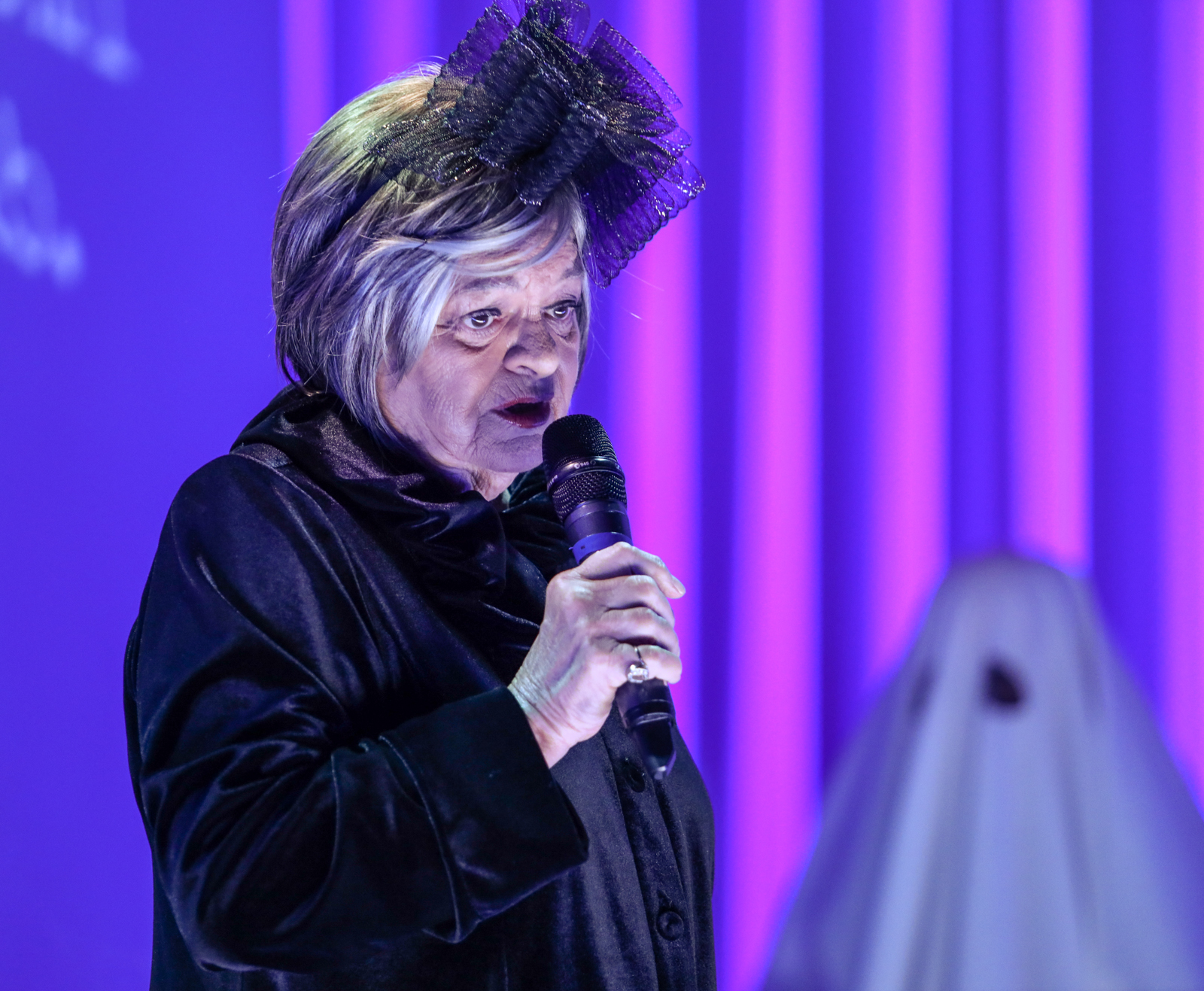




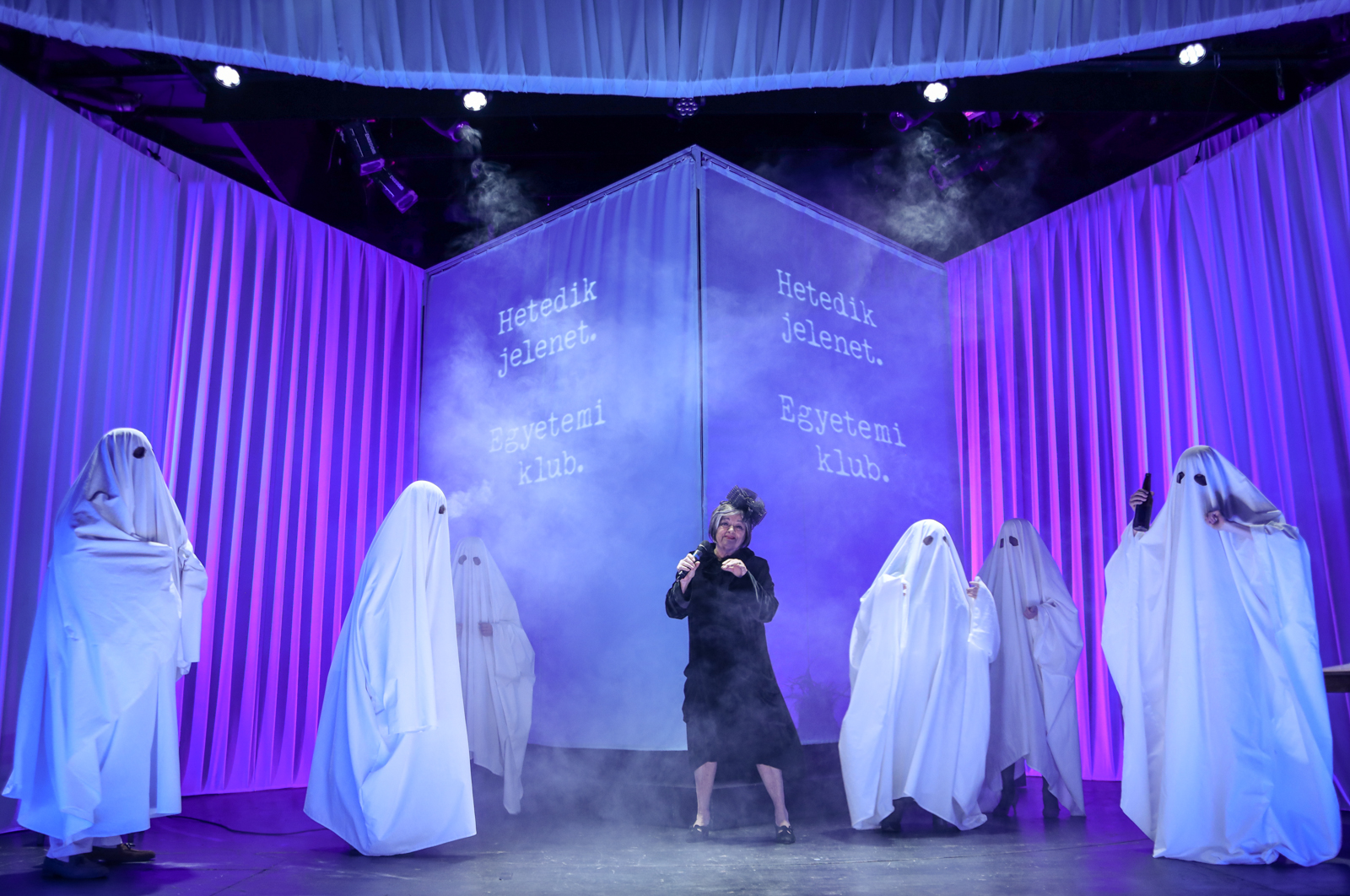


Photos: Judit Horváth
"Kristóf Kelemen has made a name of himself through the way he's able to blur the boundaries between the documented and imagined. The Widow of the Nation is a work of fiction, made possible by extensive research at the Blinken OSA Archive. This archive itself is a perfect example of the intention to transform ambivalent historical experiences into a unified memory. At the beginning of the performance, a projection reads that reality and what we see on stage are not the same. The projection ends with the sentence "This is not reality". This statement is the thesis of the play. (...) The ensemble of Örkény Theatre is clearly in excellent form, and Kristóf Kelemen's direction – one that is at once serious and playful, intimate and aloof – suits them well."
(Klára Nagy, szinhaz.net)
"The premiere was set for the 16th of June to coincide with the reburial anniversary of Imre Nagy – because in the context of the 1989 event, the Widow of the Nation is about our relationship to the past, its concealment and distortion, from the perspective of the people (and in this case, primarily women) who have been immersed in history."
(Lilla Turbuly, kutszelistilus.hu)
"What we see is the struggle women have with past, and with themselves – with their mistakes and/or frailties, with their hopes and beliefs, and with each other. Of course, one should not imagine them pulling at each other's hair on stage – the widows wandering in the graveyard are well beyond living by rage or passion. That's not what this is about. They are not fighting for the man, but for the right to remember and cherish his memory. For a sense of (emotional) equality."
(Zsófia Molnár, Élet és Irodalom)
"It’s thrilling to see Generation Y or Z discovering the 80s for themselves – then making a film or a play about it. "
(Noémi Sümegi, Index)
Widow: Anikó Für
Lover: Éva Kerekes
Boy: Máté Borsi-Balogh
Comrade/Historian: Eszter Csákányi
Documentary filmmaker: Kriszta Bíró
Grave digger/Priest/Cellmate/Medical expert: Zsolt Nagy
Old woman/Widow of Home Office Employee: Ági Voith
Doctor in residence: Bettina Józsa
Camera: Alina Vincze, Petra Pantyi
Dramaturg: Barbara Ari-Nagy
Dramaturg-apprentice: Márk Olteán
Set Designer: Zita Schnábel
Costume Designer: Juli Szlávik
Assistant Costume Designer: Lili Abed-Hadi
Music: Árpád Kákonyi
Lighting Designer: Sándor Baumgartner
Prompter: Zita Kanizsay
Base Assistant: Eszter Sós
Assistant Director: Ariadné Érdi
Director and Writer: Kristóf Kelemen
Special thanks: Alexa Bakonyi, Ági Bartos, Bea Egyed, Ariadne Érdi, Gabriella Gál, Kinga Kádár, Juli Neudold, Zita Schnábel, Eszter Szakács, Réka Tenki, Réka Tóth, Andrea Bagi, Mónika Frank, Magdolna Jákfalvi, Bernadett Kiss, Erika Kovács, Éva Lázár, Anita Patonay
Lover: Éva Kerekes
Boy: Máté Borsi-Balogh
Comrade/Historian: Eszter Csákányi
Documentary filmmaker: Kriszta Bíró
Grave digger/Priest/Cellmate/Medical expert: Zsolt Nagy
Old woman/Widow of Home Office Employee: Ági Voith
Doctor in residence: Bettina Józsa
Camera: Alina Vincze, Petra Pantyi
Dramaturg: Barbara Ari-Nagy
Dramaturg-apprentice: Márk Olteán
Set Designer: Zita Schnábel
Costume Designer: Juli Szlávik
Assistant Costume Designer: Lili Abed-Hadi
Music: Árpád Kákonyi
Lighting Designer: Sándor Baumgartner
Prompter: Zita Kanizsay
Base Assistant: Eszter Sós
Assistant Director: Ariadné Érdi
Director and Writer: Kristóf Kelemen
Special thanks: Alexa Bakonyi, Ági Bartos, Bea Egyed, Ariadne Érdi, Gabriella Gál, Kinga Kádár, Juli Neudold, Zita Schnábel, Eszter Szakács, Réka Tenki, Réka Tóth, Andrea Bagi, Mónika Frank, Magdolna Jákfalvi, Bernadett Kiss, Erika Kovács, Éva Lázár, Anita Patonay